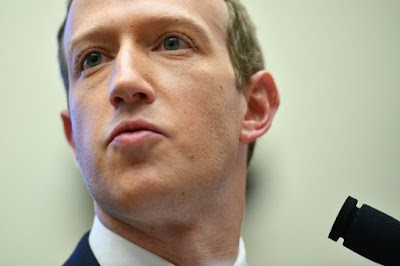Yahoo – AFP,
Glenn CHAPMAN, November 17, 2019
 |
Head of Stadia Games and Entertainment Jade Raymond speaks during the
annual Game Developers Conference in San Francisco, California on
March 19, 2019 (AFP Photo/Josh Edelson) |
San
Francisco (AFP) - Ever-expanding Google becomes a gaming company Tuesday with
the launch of its Stadia cloud service that lets people play console-quality
video games on a web browser or smartphone.
The
internet giant hopes to break into the global video game industry expected to
top $150 billion this year, with cloud technology that could broaden audiences
attracted by rich new features as well as ease of access with no more need for
consoles.
But
analysts say Stadia's outlook is uncertain as its faces rivals such as
PlayStation Now in an emerging and highly-competitive market.
Stadia
plays into a trend in which content -- ranging from blockbuster films to work
projects -- lives in the cloud and is accessible from any device.
"All
of these new services are merely pointing out that we don't need sophisticated
hardware in the home to access entertainment," said Wedbush Securities
equity research managing director Michael Pachter.
Google last
month sold out of "Founder's Edition" kits, which are priced at $129.
Each kit
contains a Stadia controller and a pendant-shaped Chromecast Ultra wireless
connection device that plugs into television sets.
Stadia
games are playable using Google Chrome web browser software on computers.
It also
works with Google-made Pixel smartphones from the second-generation onward, and
on televisions.
Stadia Pro
subscriptions, priced at $10 a month in the US, will be available in 14
countries in North America and Europe.
 |
A visitor
plays the cloud-based game "Doom" at the Google Stadia booth during
Gamescom in Cologne, Germany, on August 21, 2019 (AFP Photo/Ina FASSBENDER)
|
All in
the game
But
analysts say Stadia could wind up as another "bet" that Google walks
away from if it fails to live up to expectations.
"Stadia
will live or die by its content," said Ovum senior analyst George
Jijiashvili.
"The
announced 12 launch titles are underwhelming."
Subscribers
will be able to buy games that will be hosted at Google data-centers, but some
free games will be available to subscribers, starting with "Destiny 2: The
Collection."
Stadia on
smartphones will work with WiFi connections rather than rely on mobile telecom
services.
Being able
to play without lags or interruptions is paramount to gamers, and flawed
internet connections could cause frustration. Internet speed will also
determine how rich in-game graphics can be.
Some
promised features such as integration with YouTube will not be in place at
launch.
"Stadia
appears to be rushed out the door before fully ready and, worryingly, Google is
risking falling short on its promises," Jijiashvili said.
"These
shortcomings however would be easily overlooked if Google can deliver a very
reliable and high-quality game streaming service."
Google
appears committed to doing just that, according to Ubisoft senior vice
president of partnerships Chris Early.
The French
video game giant has been working with Google and its games are among titles
coming to the service.
 |
Stadia Pro
subscriptions, priced at $10 a month in the US, will be available
in 14
countries in North America and Europe (AFP Photo/Ina FASSBENDER)
|
"From
what I have seen, their plans are too deep; they are too good, and they are too
invested," Early said. "They are not calling it quits any time
soon."
He expects
a long launch period during which Google will beef up Stadia.
"If
there is a one-day problem at launch, it isn't the end of the world; it isn't
even close," he said, stressing the potential for Stadia to let people
play without investing in consoles.
But Pachter
questioned whether subscriptions were the right approach.
"The
right model is pay as you go or pay for the game and play unlimited without a
subscription," Pachter said.
"Amazon
will try one of those and will win the streaming wars."
Amazon has
game studios but no online game service.
Battle
brewing
US
technology veteran Microsoft has been testing a Project xCloud online game
platform.
"Next
year, we'll bring Project xCloud to Windows PCs, and are collaborating with a
broad set of partners to make game streaming available on other devices as
well," Microsoft corporate vice president Kareem Choudhry said in an
online post.
Sony
Interactive Entertainment last month slashed the price of its PlayStation Now
cloud video game service by about half in the US to $10 monthly.
Japan-based
Sony also boosted the library of games that PlayStation Now users can access
through its consoles or on personal computers powered by Windows software.
Sony and
Microsoft are also poised to release new-generation video game consoles next
year.
"While
we expect dedicated consoles to eventually lose relevance in the face of cloud
gaming services, there's no guarantee that it will be Google's service –-
rather than Sony and Microsoft's -– that catalyzes this trend," said Ovum
senior analyst Matthew Bailey.


















